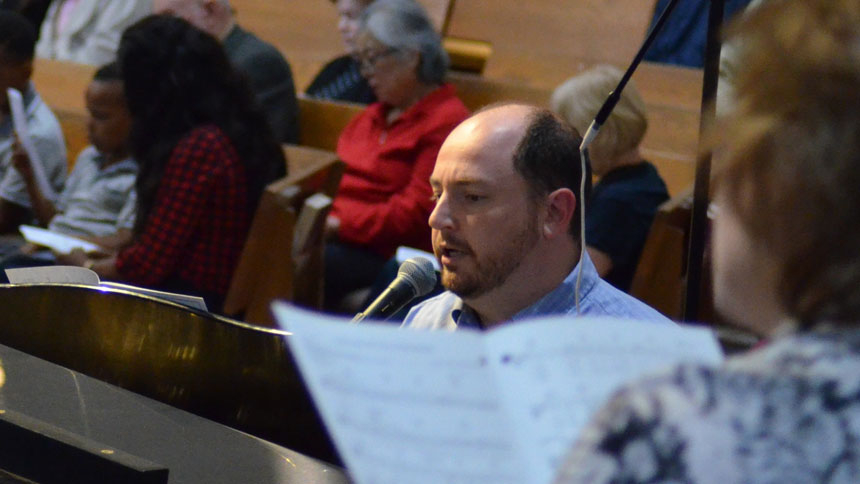
I had the opportunity to speak with our bishop, Luis Rafael Zarama, on the subject of music. In this three-part series, I share our conversation and conclude with a few of my own reflections. - JR
JR: When you went to seminary in Columbia, was there more music in church and what was it like?
Bishop Zarama: In seminary it was different because part of the formation was music. I never learned to read music, for me it was like Chinese, all the lines and notes, everything, but I think that was the first time I saw more professional music during Mass. It was more of a high Mass experience.
JR: What type of music did you sing in the seminary?
Bishop Zarama: It was mostly hymns, with organ, guitar. A mix of organ and guitar. The music there could be more festive. The guitar gives the music a little taste of Latin America.
JR: How does music help us to pray the Mass?
Bishop Zarama: If you remember when I was celebrating Mass for the National Association of Pastoral Musicians (NPM) convention this July, what I said to all of you there was that the choir starts before even the priest starts the Mass and is the last thing that the people hear when they leave the church. How important it is for the people to be welcomed by and start the celebration with music. One thing I really think is important is the music needs to be chosen in a way that the people can have a part. There can be some parts in the Mass, for example, after Communion a meditation, that the choir sings alone, but the rest of the time, if you're looking at the people to take part and sing, you need to choose songs that will be easier for the people to follow. Sometimes it becomes so professional that you are sitting there in the pew only as a spectator, but unable to really take part in the music.
JR: So, you think it's really important that the music is primarily a way for the assembly to participate more fully?
Bishop Zarama: I think for me the mission of the choir is helping the people to sing. That is the function. The priest presides at the Mass, and the choir helps the people be involved not as spectators but as participants of the Mass, to be part of that.
JR: What has been your experience of music in the first two years as bishop of Raleigh, traveling around to different parishes?
Bishop Zarama: Each parish has its own personality. It's like in a family, each child has its own personality. The parents are the same, but the children have their own personality, and that happens with each parish. They have their own way of doing things. They celebrate the same Eucharist but have their own personality, and according to that, the music. So while some things are the same, a lot is different from parish to parish.

